When you travel in East Africa it can be difficult. Not everyone speaks your language, the roads are not as you expected, the travel times are much longer than expected. This post will take you through how to travel like a local in East Africa. Inside knowledge into how to get around easily and efficiently, well, as efficiently as Africa will allow!
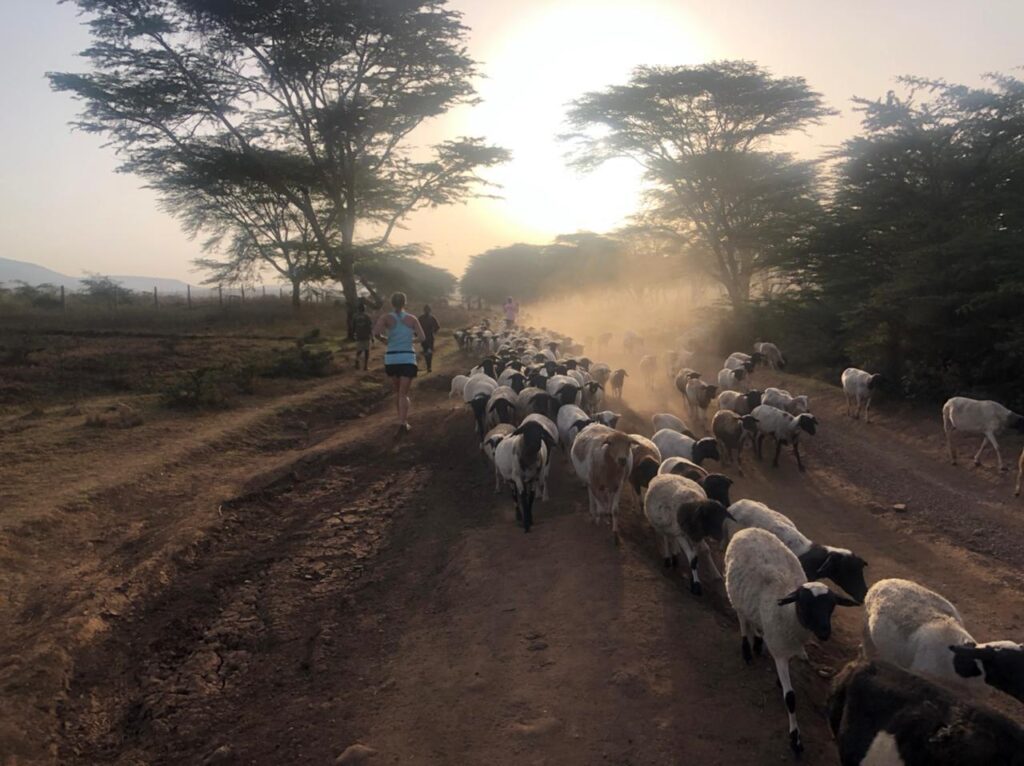
How to travel like a local – what you need to know
Buy a local sim card
The first thing you need to do when entering the country is to buy a local sim card and load it up with data and airtime. Data is cheap, especially in Tanzania. With the Airtel network, you can buy 3GB for around $4.50 and 8GB for under $7.
Before you buy a sim, ask around which network has the best coverage. For Arusha, Tanzania Vodacom was the best. In Kenya, Safaricom is the best, but it depends on what area you are in.
Use you phone as your bank account
Sometimes in East Africa, it can be difficult to get money out of your bank account. There may be limited ATMs where you are, or you will be charged for using your international card. To avoid this the best thing to do is load your phone with money.
Depending on the network you choose it will have different names, e.g. Airtel money, mpesa etc. You go to a local agent and give him the money and your phone number and he/she deposits the money onto your phone. You can now use your phone as you would a bank card, you can pay for transport, goods, services etc all by using your phone. The benefit is that you don’t have to carry cash around and you don’t get charged as you would for using your foreign bank card.
Dress like a local
This one is simple and yet often ignored. Dress to blend in – don’t wear skimpy clothing when walking in the villages/towns. Villages especially are often quite conservative, just look around you at what the locals are wearing and try and blend in. Often this will involve covering your thighs and knees and cleavage if you are a lady. In some places, it also means covering your shoulders.
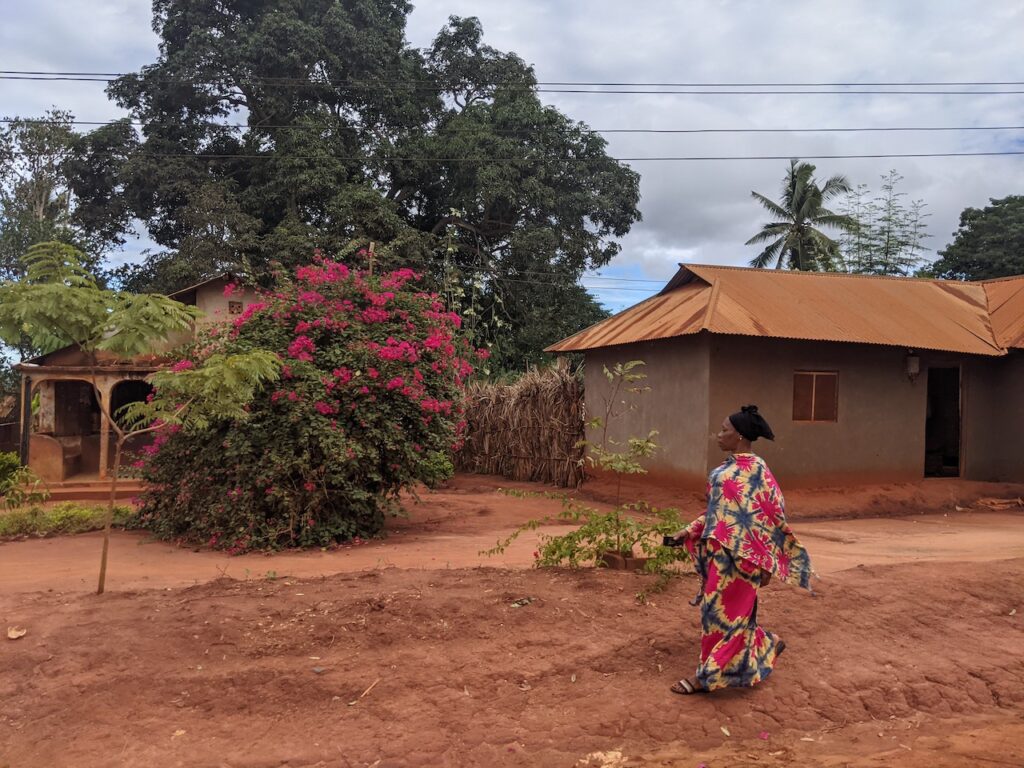
Learn some of the Local language
Greetings are very important in East Africa. Before you start your conversation it is polite (and expected) to greet someone and ask how they are. If you can learn to greet someone in their own language then even better. The most general greeting in Kenya and Tanzania is ‘Habari Yako’. This loosely translates to ‘how are you?’ or ‘what’s the news?’ The reply is Nzuri or nzuri sana, good/very good.
Habari Yako?… Nzuri sana
Show respect
Respect for your elders is a very important part of the culture. To greet someone older than you/someone in a position of power, you say ‘Shikamoo’. Shikamoo effectively means ‘I respect you.’ The reply is ‘marahaba’, I accept your respect.
Save affection for private
Respect the local culture, most places are reserved in terms of showing affection in public, you might see men holding hands in friendship but not normally men and women. Save your affection towards your partner for when you are in private.
Understand the laws and customs
In some countries, it is illegal to be gay. Even if it is legal, it is not always accepted. Always look up the laws as well as the customs and culture before you arrive at a destination or even decide to visit a destination.
Be descrete
Don’t flash your money around in public, keep small amounts of cash available for when you need it and keep the rest hidden away separately.
Eat local
Try the local food, you can eat cheaply in the small cafes, tea rooms and Dukas (shops) on the side of the road. Favourites are chapati, mandazi (a bit like a doughnut), beef stew, ugali, chicken and chips. Ugali is the staple food of a lot of East Africa, it is made from Maize and almost has the consistency of mash potato. It doesn’t taste of much but if you have it with a beef stew it’s excellent for mopping up the sauce.
Use local transport
There is no doubt that local transport, namely the dala dala or matatus (minibuses) are the cheapest way to get around. For example, a 4/5 hour bus journey from Nanyuki to Nairobi cost $5. However, there is a reason for it being so cheap. The only limit to the number of people on the bus with you is the amount of physical space. Therefore it is not full until you have someone elses’ child sitting on your lap or a sweaty strangers crotch in your face. There is also no aircon and the bus stops a lot to pick up more customers making the journey slow. They are also known to drive like lunatics so take this recommendation with a pinch of salt.
Alternative options for a slightly more comfortable ride including, tuk-tuks or bodabodas (motorbikes). I would say the safest option is a tuk-tuk and it is still cheap. There are also bigger coaches that do longer journeys. These are a very reasonable ways to get around. For example, the Riverside Shuttle bus from Arusha, Tanzania to Nairobi, Kenya for example is $32 and takes around 7/8 hours depending on how long the border crossing takes.
For private transport Uber is available in Kenya and Tanzania has its own version called ‘Indriver‘. Download the apps for a safe way to get around.
Be cautious on the road
Watch out for motorbikes driving like nutters. Be aware that zebra crossings don’t mean much on roads, do not assume people will stop to allow you to cross! Motorbikes especially don’t stop so always look before you cross and be aware of them when driving.
Carry your licience and passport when driving
Police may stop you for unknown reasons and try and find an excuse to fine you. Make sure you have your driving licence and passport with you. Know the speed limits and the laws and abide by them. For example in Tanzania, you must wear closed shoes to drive.
Be polite and courteous to the police and you will not have a problem. A lot of the time they just stop you for a chat.
Learn not to take time seriously
Remember there is such thing as ‘African time’ in two senses of the word. Generally, timekeeping is not a strong point, expect people to be late and be pleasantly surprised if they are there on time.
In the second sense, there is a thing called ‘Swahili time’ which is 6 hours ‘behind’ normal time. Basically, 7 am is the ‘first hour’ in Swahili time. So 7 am is 1 o’clock, 8 am is 2 o’clock etc. When arranging meeting times etc always clarify if they are talking Swahili time or not.
Be prepared for things to not go as planned
Be prepared for things to go wrong, shops to not be open when they say they would be, miscommunication, standard items to be out of stock and just generally things not going according to plan.
Life out here can be tough and there isn’t a 24 hour Tescos/Walmart around the corner to solve the problems. Things go wrong, that is just life and you can’t control it so just go with it.
Shop locally
For fruit and vegetables try and shop in the local market, it is much cheaper and a much more entertaining experience Remember to greet people in the stalls first. Most food items have a set price.
If shopping for clothes in the second-hand market the price for most things is negotiable. If the market owner sees that you are foreign and don’t know how much things should cost they might put the price up. Try and watch and listen to what locals are paying before you go in so you already know the rough cost.
At the end of the day, you should pay what you are comfortable with bearing in mind a little extra will go a long way for a lot of these people.
Stay at Air bnb’s
Air bnb’s are a great option for accommodation they are usually cheaper than hotels and offer more privacy. You can also usually be in touch with the house owner who can show you around or tell you about the best places to go.
General advise
Be aware of pickpockets in urban areas, keep belonging close to you. Always ask before you take photos of people, it’s just common courtesy. Don’t be offended when people shout Mzungu at you, it means ‘white foreigner’ it is not said to offend you, but often because they are excited to see you.
How to travel like a local
That was a lot to take in, but that is effectively how to travel like a local in East Africa. The main things to remember are to be respectful, laid back and try to blend in. Travelling around in East Africa is an experience in itself so sit back, relax and enjoy the ride.
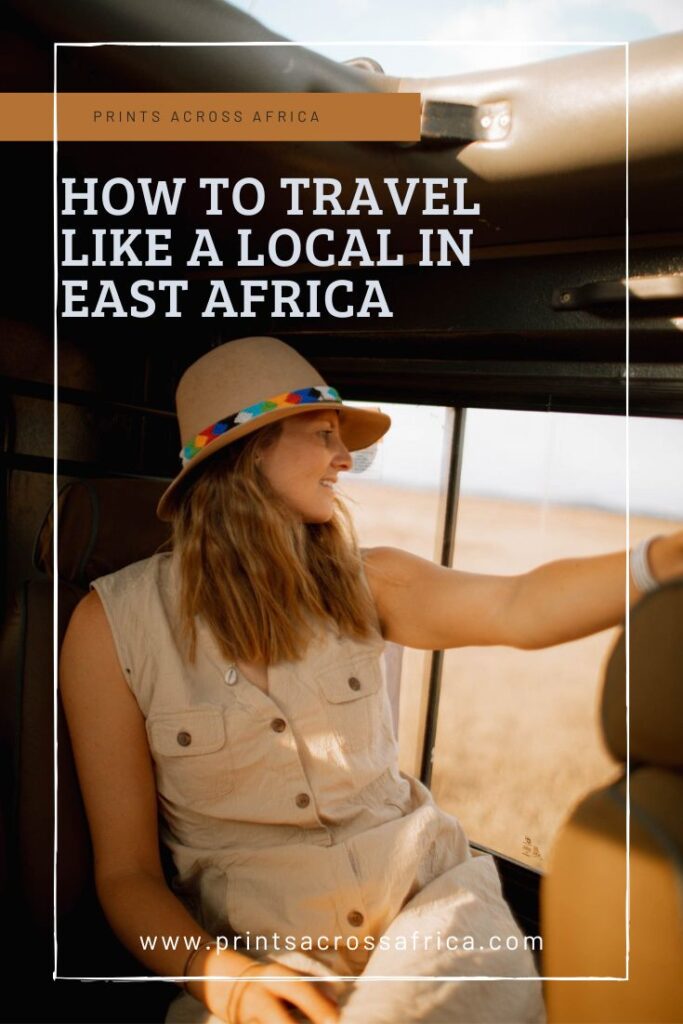
Have you enjoyed reading this post? Why not share it for others to see
Let me know if there is anything I have forgotten in the comments below!


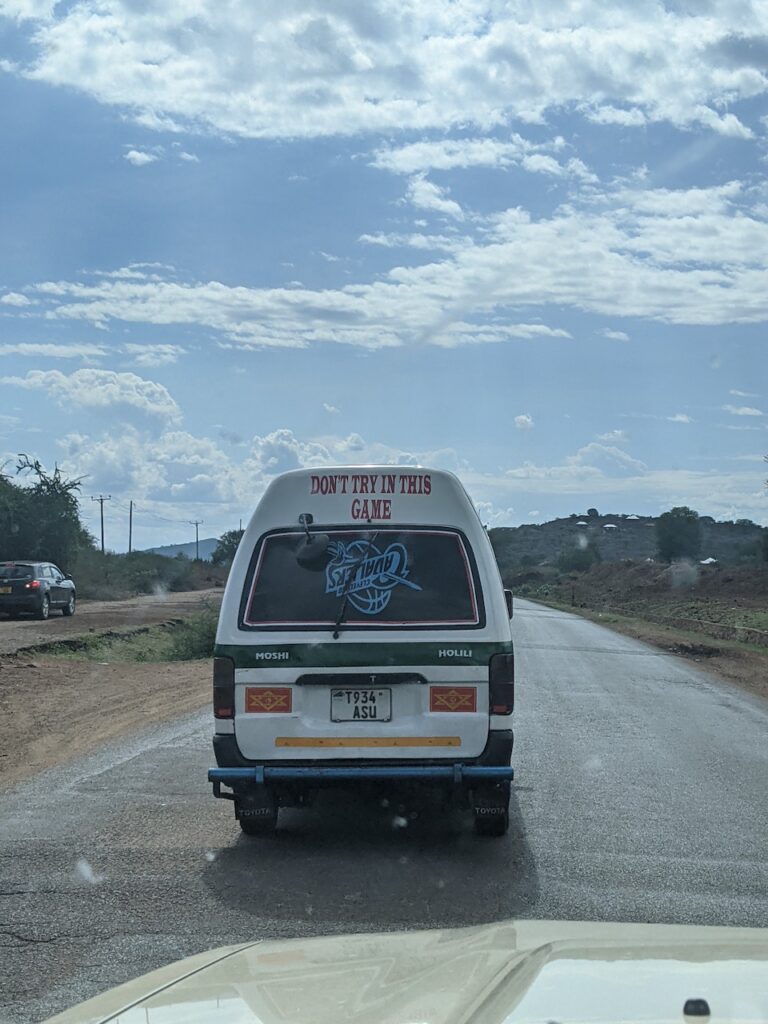
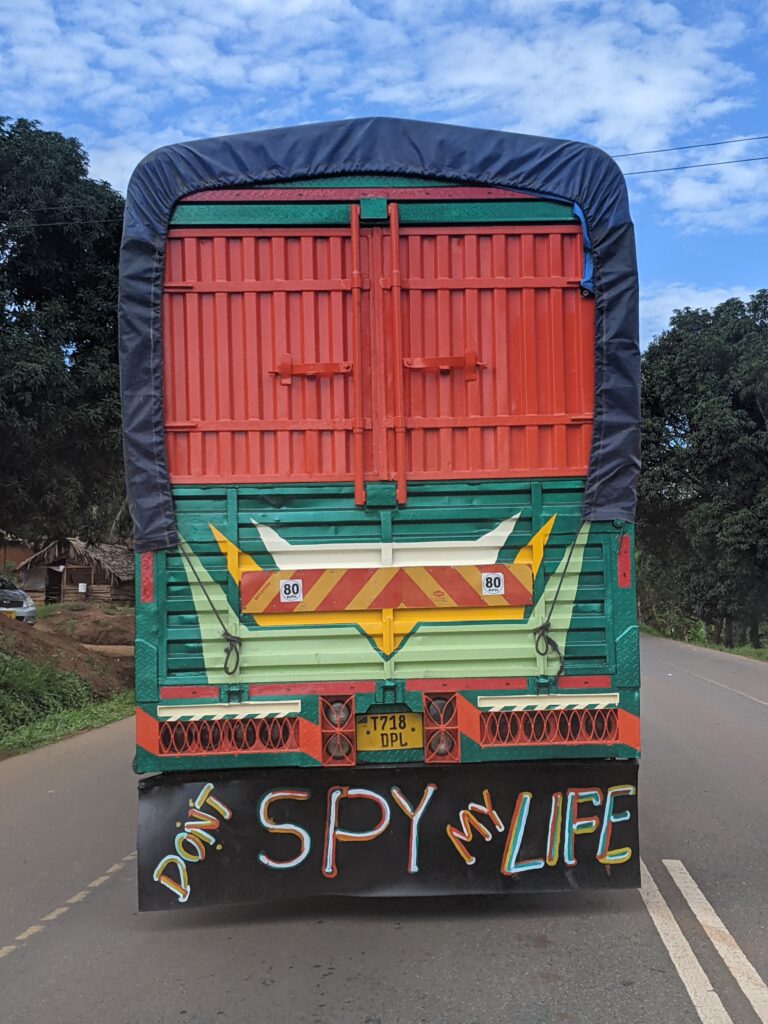
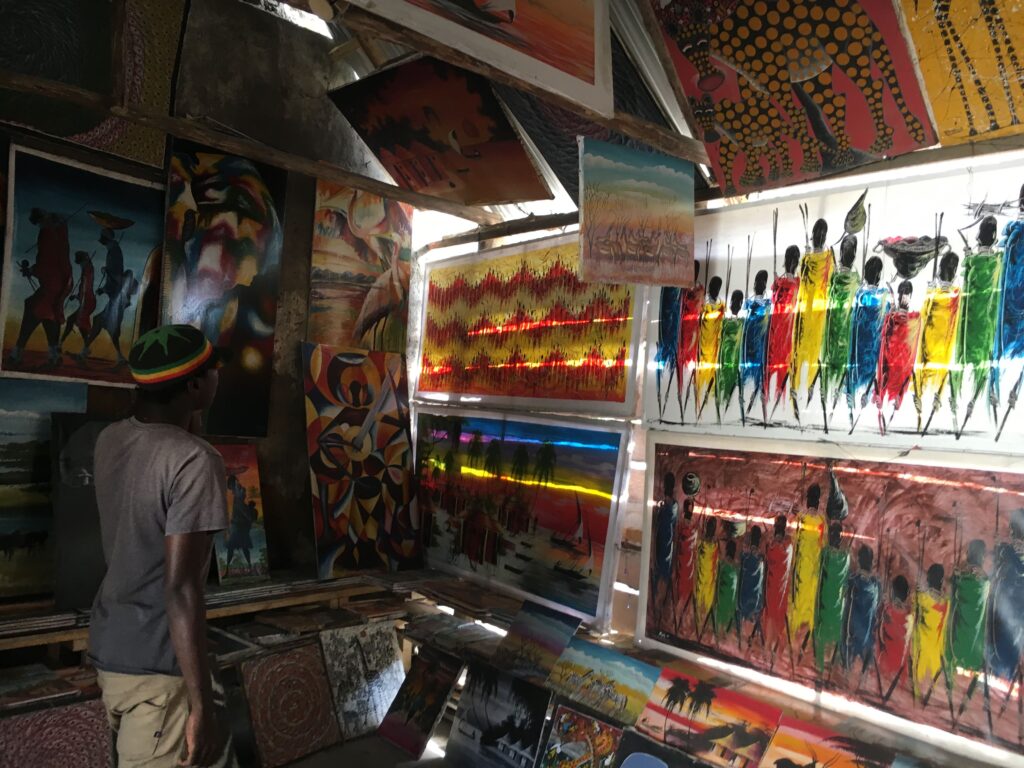
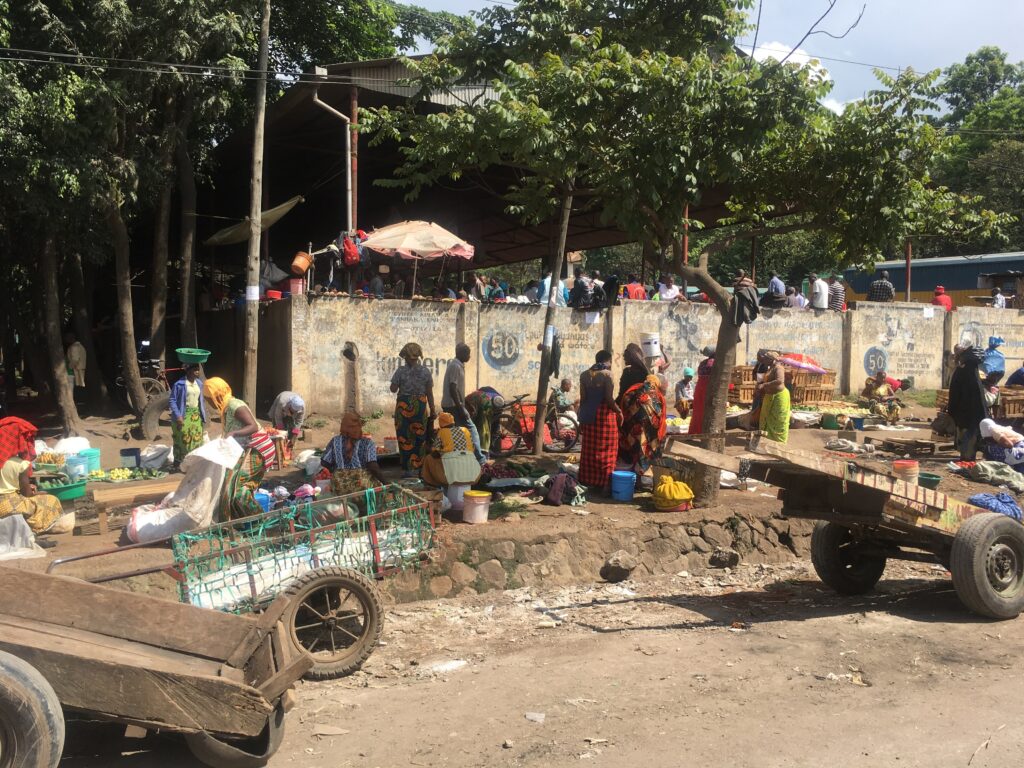
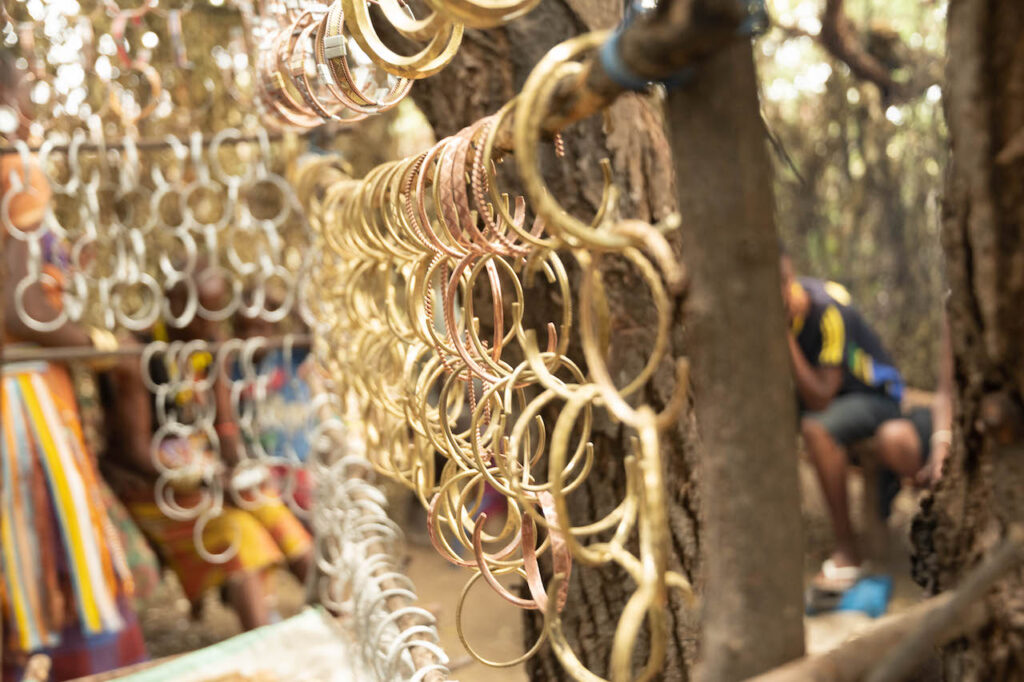










0 Comments